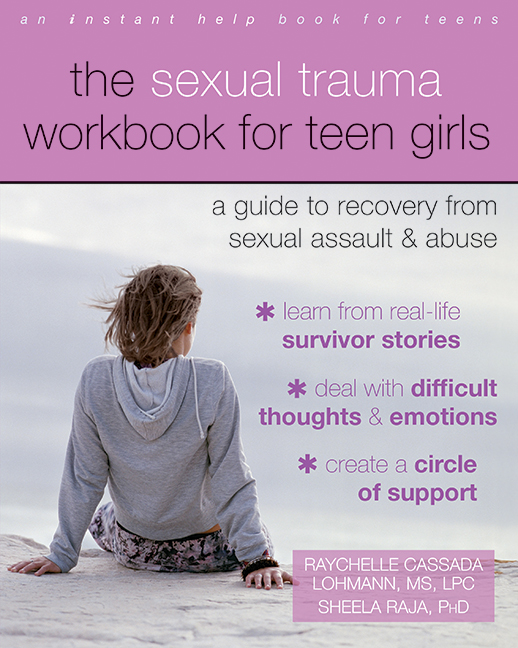by Sheela Raja, PhD, author of The Sexual Trauma Workbook for Teen Girls
The recent allegations against Harvey Weinstein and many other powerful men have brought on an avalanche of media coverage. As a trauma psychologist and a keen follower of popular culture (confession: I do watch reality shows), it’s been incredible to see trauma survivors from every industry come forward. We’ve needed a “watershed moment” for a long time, and if this is it, then we should be thankful. The hashtag #MeToo is being used all over the internet, with brave people talking about how they have survived sexual violence.
Here are five things all of us can learn from the Weinstein coverage:
1. Sexual violence is prevalent. The hashtag #MeToo gave a personal face to the numbers. It’s one thing to hear that one in for women are survivors. It’s another thing to see that they are your friends, your neighbors, your relatives, your teachers. Now that we, as a culture, know the prevalence of sexual trauma, we have to prioritize preventing abuse and supporting survivors.
2. Every survivor copes differently. Some folks (mostly women) have chosen to tell their stories in detail when they are coming forward. Others are simply saying, #MeToo, without any more explanation. Still others don’t feel they want to go public with their story. There is no right or wrong way to survive sexual trauma.
3. We should support those who choose to come forward in a brave public way. But we should not discount the bravery of those who have chosen, for their own personal reasons, to not share their stories publicly at this time.
4. We need to redefine what makes a “credible” victim. One of the reasons people are hesitant to tell their stories is because our culture shames and blames them, particularly women, for their own victimization. Some may still think that real victimization is a stranger jumping out of the bushes, and assaulting a sexually inexperienced woman. Rape and harassment can happen to anyone, across age, ethnicity, profession, and appearance. It’s time to support all survivors.
5. If we want to stop sexual violence, we need more education and organizational support. From an early age, we need to teach children about respect and empathy for others. There is research that suggests that as people become more powerful, they lose their empathy for others. In industries where this is a large power difference between supervisors and supervisees, and when men dominate management, it is very important to have safe places where women can report sexual harassment and trauma, and find support and justice.
See also: Healing from Trauma: The Power of Community Resilience
Healing from sexual trauma is possible, but it’s hard to do alone. There are many things we need to do as a culture to better support survivors. We can allow people to tell their stories, but we can also respect their silence. We can challenge victim blaming, and we can create a world with more empathy and understanding. And hopefully, one day, there will be fewer people saying #MeToo because we helped to create a safer, more respectful world for women and girls.
 Sheela Raja, PhD, is a licensed clinical psychologist and author of The Sexual Trauma Workbook for Teen Girls. She is also the author of Overcoming Trauma and PTSD. Raja is an associate professor at the University of Illinois at Chicago, where she researches the impact of trauma on health. Her newest book is The PTSD Survival Guide for Teens.
Sheela Raja, PhD, is a licensed clinical psychologist and author of The Sexual Trauma Workbook for Teen Girls. She is also the author of Overcoming Trauma and PTSD. Raja is an associate professor at the University of Illinois at Chicago, where she researches the impact of trauma on health. Her newest book is The PTSD Survival Guide for Teens.


 2024 Peace Playbook: 3 Tactics to Avoid Clashes with Your Partner
2024 Peace Playbook: 3 Tactics to Avoid Clashes with Your Partner